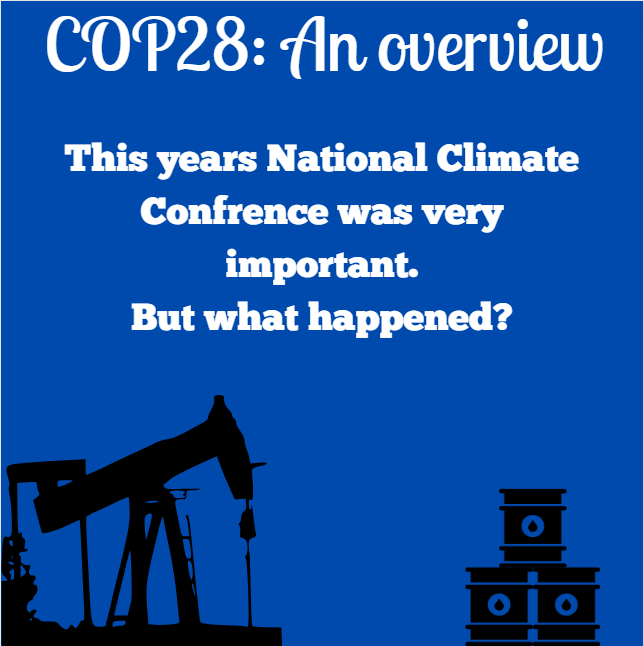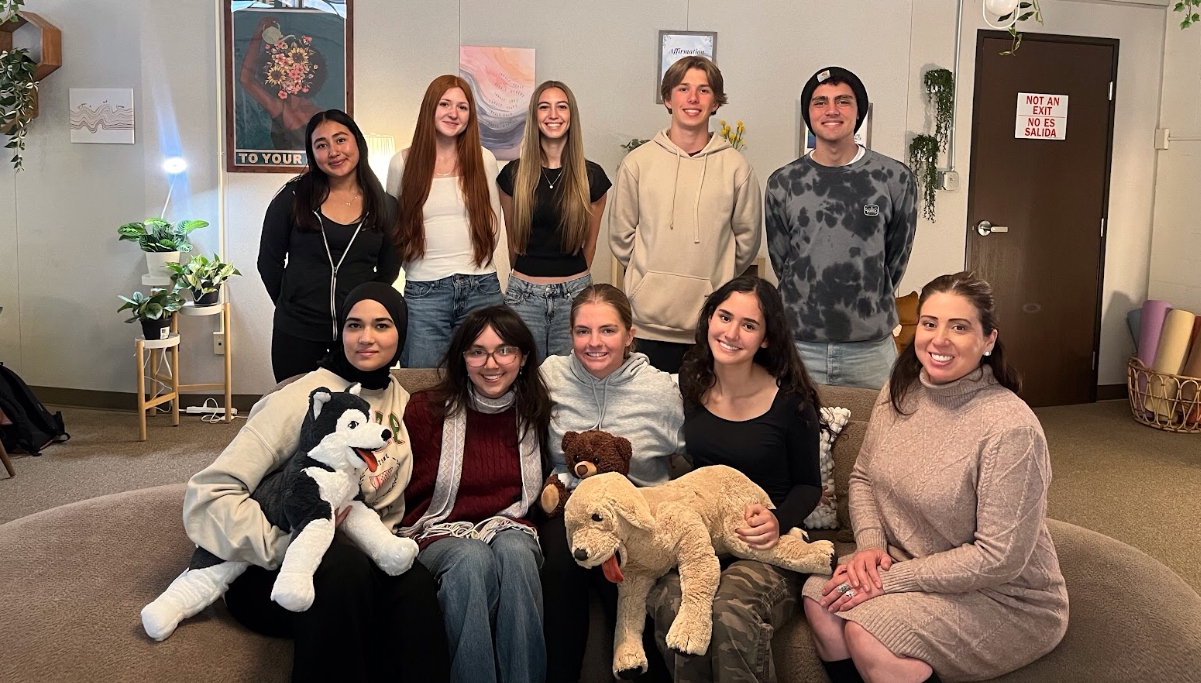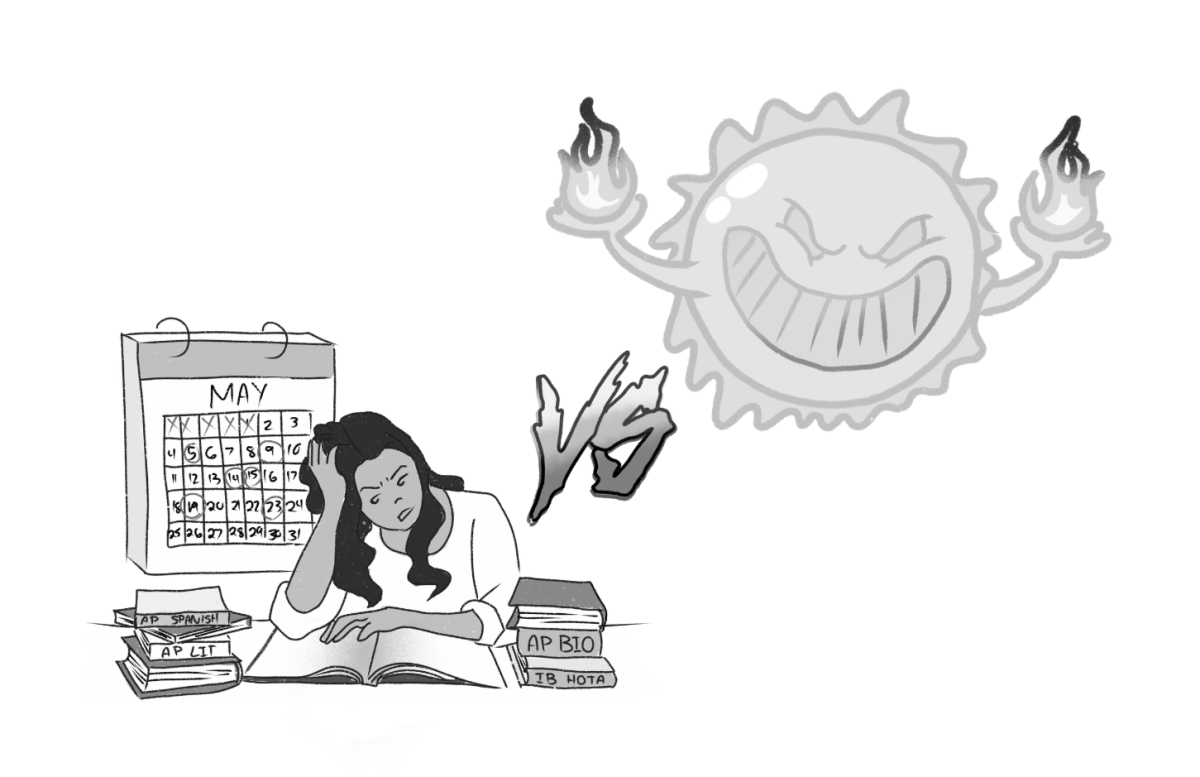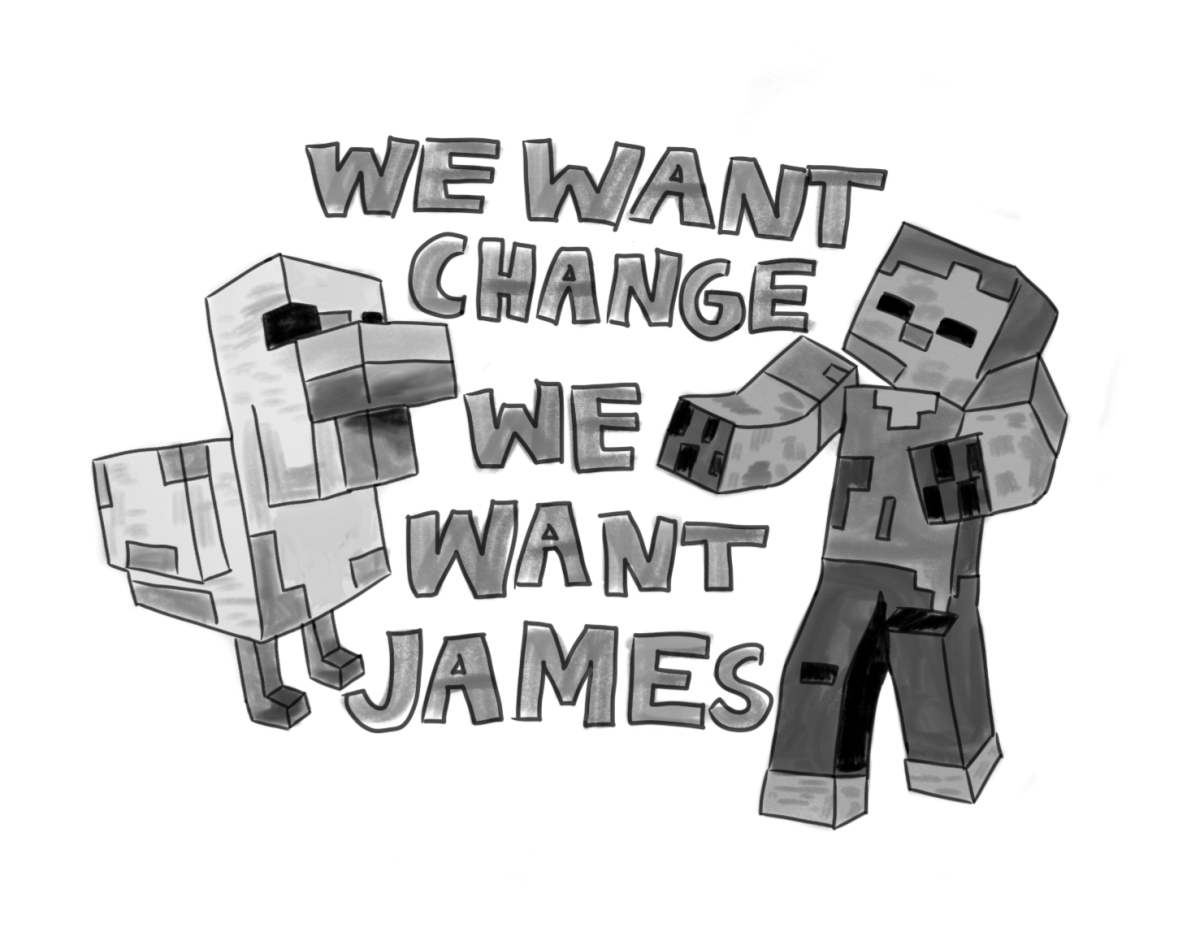The United Nations Climate Change Conference, better known as COP, recently had its 28th anniversary as the world paid close attention. The conference was held in Dubai, United Arab Emirates, and lasted from November 30th to December 12th of 2023. The conference brought together 198 countries, with any agreement requiring support from all 198 in order to make any real progress. The president of this year’s conference was Sultan Al-Jaber, the head of the Abu Dhabi National Oil Company. This selection caused more than enough controversy on its own, as the conference was about climate change — something oil companies have been heavily against. COP28 was the best attended UN Climate Change to date, with roughly 85,000 participants from different countries sharing ideas. This year’s summit included many important, polarizing decisions that will permanently affect everyone on the globe.
Although the ending of the conference followed a common political-climate pattern — that is, concluding with little to no concrete solutions — this meeting stood out from the prior twenty-seven. It was to date the largest conference, with over 80,000 attendees, and 4,000 journalists. All of this attention to the meeting provided a feeding ground for many different industry influencers, with 2,400 lobbyists for fossil fuels attending with support. In fact, the country tasked with hosting this climate summit, the United Arab Emirates, appointed the head of its oil company, Sultan Al-Jaber, to run the conference.
That appointment struck some as suspect, given that the host country makes 80% of its revenue from oil, and is also increasing oil production despite its promises to help control climate change. This shady realization doubles down when coupled with the fact that Al-Jaber brought up the Paris Agreement when stating “keeping 1.5[°C] alive is a top priority” before the conference, although saying during the meeting that it “isn’t necessary to halt fossil fuel consumption” to meet said priority. The 1.5°C in this context discusses the Paris Agreement, an agreement signed by almost 200 countries with the shared goal of limiting climate change to 1.5°C above pre-industrial levels by the end of the century. His statement was quickly criticized by many scientists and climate experts, causing Al-Jaber to take back his claims.
He also made a second controversial statement, namely demanding attendees to “show me the roadmap for a phase-out of fossil fuel that will allow for sustainable socioeconomic development, unless you want to take the world back into caves.” His clear pushback against removing fossil fuel production and consumption displayed to many that putting an oil executive as the head of a climate change conference can be seen as a direct conflict of interests, considering the goals of most oil companies. COP28 was almost doomed from the start.
Despite Al-Jaber’s final remarks stating that this meeting was the “beginning of the end” for fossil fuels, COP28 concluded with no more than a flimsy agreement to “do more” to address — but not solve — climate change. The largest problem of this year’s conference was the lack of solutions for arguably the most important issue: the Paris Agreement.
The Paris Climate Agreement is a legally binding international treaty on climate change. The agreement states that each and every country is morally obligated and legally bound to “limit the temperature increase to 1.5°C above pre-industrial levels” by the end of the century. Global leaders have stressed this limit heavily as during recent years, to little avail. According to climate scientists, greenhouse gas emissions must peak before 2025 at the latest and decline 43% by 2030 in order to achieve this 1.5°C goal. As of now, humans are nowhere near that threshold. In fact, humanity is far more likely to increase emissions of heat-trapping gasses into the atmosphere in the coming years.
The conference had a lot of faults but was not entirely fruitless. There were a few steps taken in the right direction to halt climate change. First, the Global Methane Pledge, which promises to cut methane by 30% from 2020 levels by 2030, could avert 0.2 degrees Celsius of warming (0.36 degrees Fahrenheit) by 2050. More than 150 countries have signed on since it was created at COP26 a few years ago. At COP28, large methane emitters, such as the United States and Brazil, offered more details about how they will regulate this greenhouse gas, including new equipment to monitor methane leaks, equipment to capture wayward gasses, ending practices like flaring, and inspections to ensure compliance. Second, COP28 secured a commitment to triple the world’s renewable energy capacity and double the rate of energy efficiency improvements by 2030. Both of these events sparked hope for many during the tense meetings.
However, these baby steps are far from the strides we need in order to make actual progress. Despite the Global Methane Pledge, methane remains an incredibly large problem. Agriculture is the largest contributor to methane emissions, and despite promises to cut methane emissions from mining and drilling, agriculture remains untouched. Another stark problem with the outcome of this year’s summit was the fact that most agreements do not establish a specific timeline, benchmarks, or investment goals, leaving much to be desired for an actual plan. And finally, watch as humanity kisses its 1.5°C goal goodbye. The year 2023 may become the first year that annual temperatures rise more than 1.5°C, and it may only be a few more years before this extreme becomes the average. Again, global greenhouse gas emissions need to fall by 43% by 2030, but they are still rising for now, and current estimates show that they will fall by just 2% by the end of the decade.
COP28 was an overall failure. Humanity has a deadline, and each year’s United Nations Climate Conference is the largest opportunity humanity has to actually make something happen to solve climate change. Despite this conference being a blank sheet of paper, where many different agreements and solutions could be found and put into effect, December 12th, the final day of COP28, came with little success. This nothingburger of a meeting has just about compromised 2023’s biggest hope for climate change and should be taken as a warning. Moving forward, people need to make real, enforceable promises with concrete, specific plans of action. The more humanity waits, the deeper we dig ourselves into an ever-warming hole.









